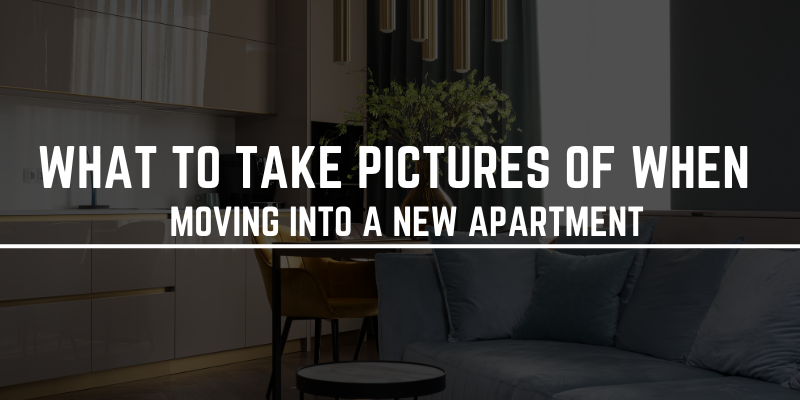I have lived in 6 rental apartments/houses over the last 10 years and with each one, I learned more about what to do to ensure I get my security deposit back from my landlord.
Moving out of an apartment or other rental property can be stressful. Nothing eases that stress like receiving a fully refunded security deposit. Here are some great tips to ensure you get that cash back in your pocket…Where it belongs!
How to get your deposit back from your landlord?
1. Review Your Lease or Rental Agreement
A few months before your lease is up, take a look at the lease agreement you signed. Understanding your lease agreement and all the rules and requirements are essential to getting your security deposit back.
What are my obligations to the property? What is considered “normal wear and tear”? How many days’ written notice are required before moving out? Having a clear understanding of the things you are responsible for can go a long way.
In the last lease that I was in, the requirements are that we give 45 days notice before we move. At first, I thought it was 30 days until I reviewed the lease. This was a mistake that cost me money after moving out.
7 Illegal Rental Agreement Clauses That Could Make Your Lease Unenforceable
2. Give Proper Notice to Move-Out
Rules surrounding lease termination differ from state to state and lease to lease, it’s generally expected that you must give your landlord at least 30 days’ notice when moving out. But again, make sure you read your specific lease. Some leases will require more notice.
Without giving your landlord proper notice, you may be required to pay an additional month’s worth of rent, and you might have to wait a long time to get your security deposit back. This is one of the most costly mistakes you can make since having to pay an extra month’s rent because you didn’t give proper notice is essentially giving back your entire deposit.
How To Give Landlords Proper Notice Of Moving-Out
3. Repair any Damages
This is the most common area where landlords begin to deduct money from your security deposit. You and your landlord have assessed the damages and talked about what needs to be repaired. Now, you can spend your last month in the property fixing anything required.
You should leave any complicated repairs to professionals but easier fixes can be handled by yourself. These repairs might include patching holes in the wall or adding a fresh coat of paint to a room. In most cases, you likely won’t have to paint – unless you’ve completely changed the color. If your walls are dirty, consider just washing them with a wet towel and soap.
4. Deep Cleaning
Before saying goodbye to the property, make sure to give it one last deep cleaning. It’s best if this is done after all your things are gone. This should not be an average cleaning…Make that place sparkle!
Get rid of all the trash. Clean and scrub everything as thoroughly as possible. Don’t forget to clear out and wipe down the refrigerator, vacuum the carpets, mop the floors, clean the toilets, and scrub the sinks and showers. Your landlord is much more likely to return your full security deposit this way.
Here is a great cleaning checklist to use before moving out and leaving the residence.
5. Pre-Move-Out Landlord Walk-through
A month prior to moving out, ask your landlord if they will do a quick walk-through of the property with you. Your landlord can then point out items that do and do not need repairs and cleaning before you move out. The specifics!
This way you can focus on your landlord’s requests instead of wasting time on something that won’t affect your security deposit retrieval.
Anything that you can fix like holes in the walls or fixtures, you should take care of it. The more the place is put together and usable again for the next tenant, the better the chance of getting your security deposit back.
6. Final Inspection
If possible, conduct a final inspection with your landlord. Walkthrough each room to ensure that all repairs have been taken care of. Make sure that your landlord is satisfied and signs off on all of the rooms before moving out.
This is a great time to relinquish the keys to the property and say thank you. Also, this is the perfect time to ask when you will be receiving your FULL security deposit refund.
7. Leave a Forwarding Address
It may seem like a no-brainer, but it’s an easy one to forget. Most landlords will send your refund in the form of a check, not a direct deposit. With no forwarding address, they won’t know where to send your refund.
Luckily, this is an easy fix if you’ve forgotten. Just give your landlord a call or send an email with where you would like your refund to be sent.
8. Don’t Leave Anything Behind
Anything you leave behind that will cost the landlord money to move or dispose of, may end up coming out of your security deposit. It is likely that this is also stated in your lease agreement. Make sure you get rid of furniture you don’t want, bring it with you, sell them, or get local storage rates if you need to do something with them.
If you leave just a box or two behind, most likely you’ll just have to come back and pick it up, or your landlord may just dispose of it. A general rule is if it costs the landlord money, it will likely end up coming out of your security deposit.
9. Give Back Your Keys
It’s important that you return ALL the sets of keys that were given to you. This includes gate keys, house keys, mailbox keys, and any other keys they have given you. If you lose any, it will cost the landlord money in making new ones as well as possibly having to change the locks since there are missing keys out there.
10. Don’t Forget To Ask For Your Deposit Back
Landlord and tenant laws only protect your right to get your security deposit back if you request it. If you forget or fail to ask for it, it’s possible the landlord will also “forget” and never give your deposit back. Sadly, many landlords will get away with keeping security deposits from tenants who forget to ask.
Usually, landlords have 30 days to issue you a refund, but some states give even less time. In any case, landlords have a bit of time until they are required to give you your deposit back. If you haven’t heard from your landlord after 30 days, be sure to write them a letter or best and email and phone call follow-up to make sure they are on it.
11. Know Your Rights
Even when you do everything right, some landlords will try to withhold your security deposit money (or a portion) illegally. And It’s very possible they will get away with it. Only you can prevent this.
Each state has different tenant rights laws and guidelines. Research your state’s security deposit laws and know your rights!
Also, if you need to break your lease, there are certain times you can get out of your lease without penalty.
12. Take Pictures and Videos
This is a task that should be done prior to moving in as well as after moving out.
No property comes in perfect condition. These days, most people have access to smartphones or cameras. Use them! Pictures and videos are the best way to document any pre-existing damage to the property.
Make sure to send all pictures and videos to your landlord via email. This serves as documentation and proof for your records. If the damage already existed, don’t get stuck with the bill for it later on.
13. Pre-Move Landlord Walk-through (Prior To Moving In)
This is something that you should have done prior to moving in. If you haven’t this time, there’s really not much you can do other than make sure you do it on your next rental.
Prior to moving in, this is the time you spend inspecting the property with the landlord. There is no better time to point out and document anything dysfunctional or damaged with the property.
Look for anything out of place or damaged. Open and close all doors and windows. Are there paint chips or holes in walls? Check all the light switches, fans, sink faucets, toilets, showers, bathtubs, drains, dishwashers, sprinklers, etc. The key here is to be diligent. Here’s a great Move-In Checklist you can use for your next rental property to make sure you get your full security deposit back.
If you fail to hear anything from your landlord after a few weeks or a month goes by, go to your local court and file a civil suit. That way, a judge will decide how much you’re entitled to and will make sure you get it. Don’t forget to bring all your documentation to the courthouse.
14. Prepare Your Next Rental
There are certain areas that if you prepare a little, you won’t have to worry about things getting damaged. For example, you can put floor protectors on the legs of furniture and chairs or you can make sure to line the cabinets with liners. All these little preparations will keep the place in good shape and increase your chance of getting your full security deposit back.
15. Have a Good Relationship With Your Landlord
Although you are protected in certain areas that ensure you get your security deposit back, having a good standing relationship with your landlord can play a role in getting your full security deposit back. A great relationship is more likely to increase your chances of your landlord letting little things slide, rather than finding every little item they can nickel and dime you for.




